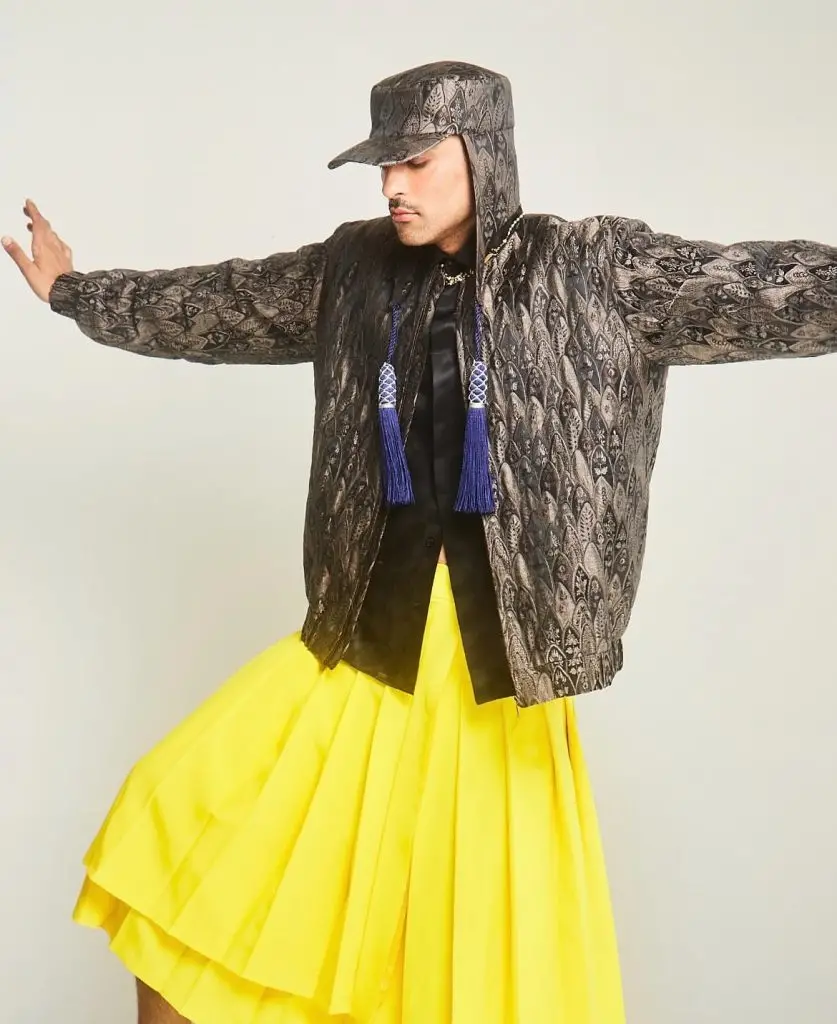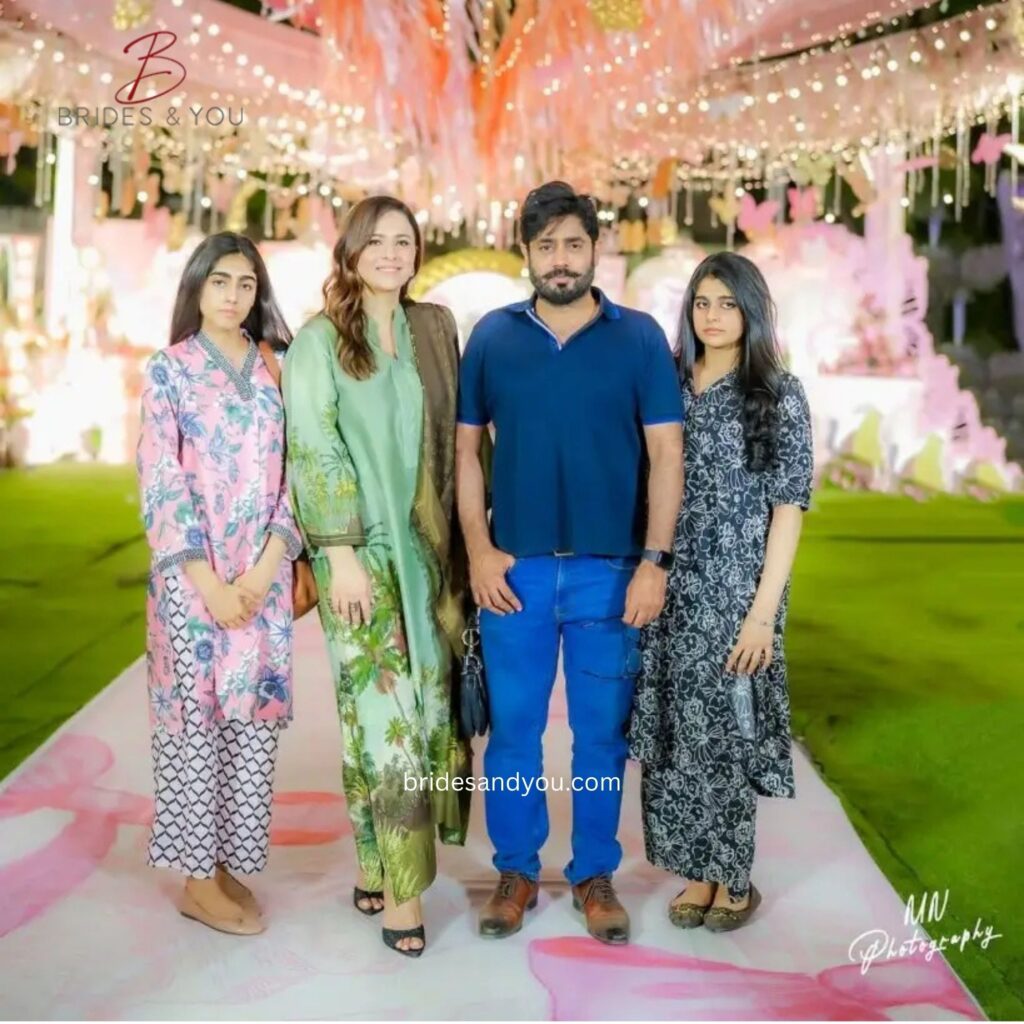Now Reading: Ali Sethi’s Bold Fashion and “Bridegroom” Song Spark Controversy: A Deep Dive
-
01
Ali Sethi’s Bold Fashion and “Bridegroom” Song Spark Controversy: A Deep Dive
Ali Sethi’s Bold Fashion and “Bridegroom” Song Spark Controversy: A Deep Dive

Ali Sethi is a talented Pakistani-American singer, songwriter, and author who has captured hearts worldwide. Born to journalist Najam Sethi and politician Jugnu Mohsin, he grew up in a creative family. His sister, Mira Sethi, is a well-known writer and actress. Ali’s soulful voice shines in songs like Muhabbat Karne Waley, Ranjish Hi Sahi, and Chan Kithan Guzari Aaye. However, his global fame skyrocketed with the Coke Studio hit Pasoori, which gained 850 million YouTube views and over one billion Spotify streams.
His performances, including a memorable appearance at Coachella, have made him a proud representative of Pakistani music. Beyond his music, Ali’s bold personality and unique style make him stand out. He openly identifies as queer, sharing his journey on social media, which has sparked both admiration and criticism.
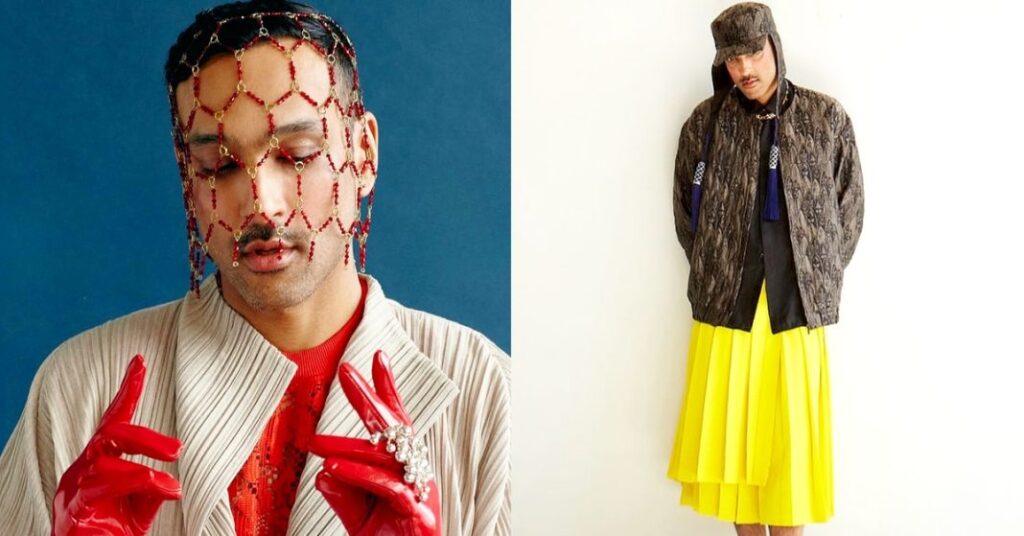
Ali Sethi’s “Bridegroom” Song: A Creative Expression
Ali Sethi’s latest release, Bridegroom, is a beautiful song that dives into a bride’s emotions as she questions her friends about her groom. The song’s heartfelt lyrics and Ali’s soulful voice create a powerful connection with listeners. Shared recently on Instagram, the song quickly grabbed attention, not just for its melody but also for Ali’s striking promotional visuals.
In the Bridegroom music video, Ali wears a bright yellow skirt paired with makeup, showcasing his love for gender-fluid fashion. This bold choice reflects the song’s theme of exploring emotions beyond traditional gender roles. For Ali, the outfit was an artistic way to express the bride’s perspective, but it also ignited a firestorm of reactions online.
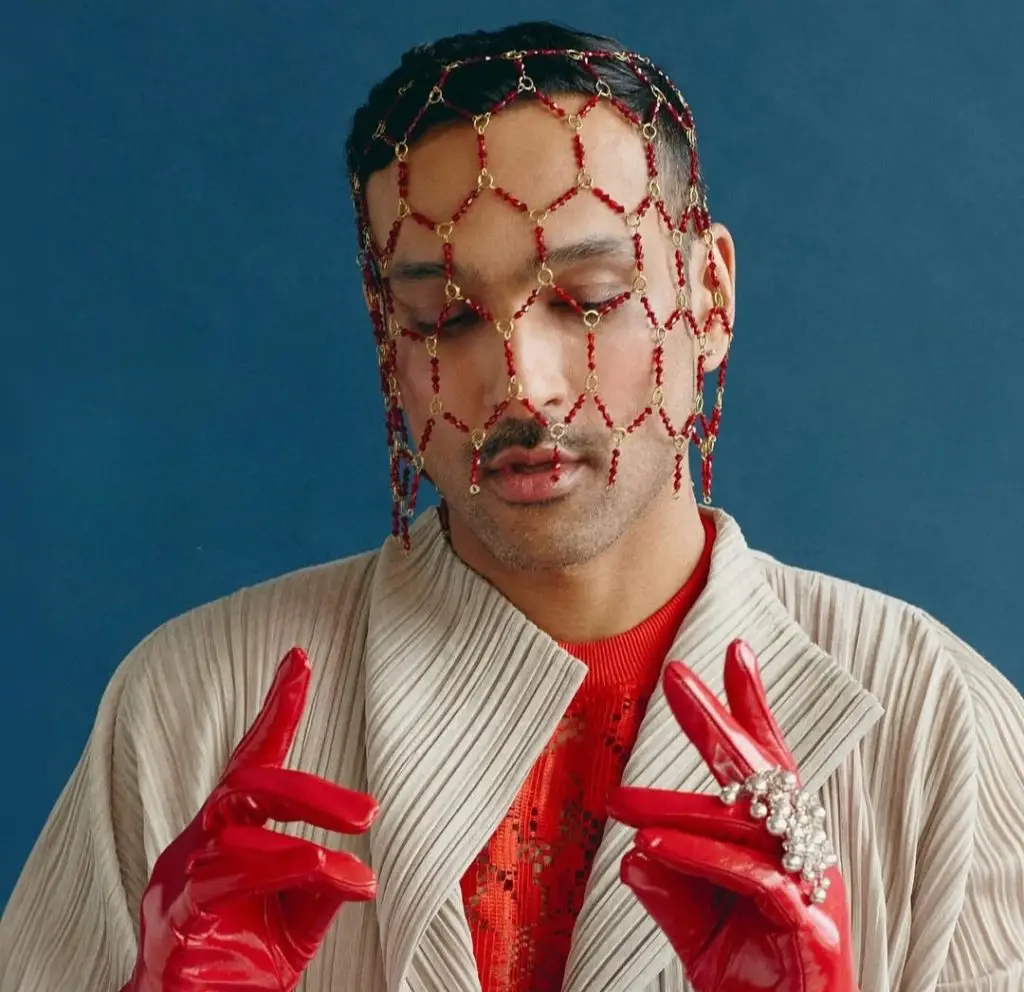
Ali Sethi Dressing Style: Why It’s Making Headlines
Ali Sethi’s dressing style has always been unique, blending traditional South Asian elements with modern, colorful twists. His recent Instagram post, featuring a yellow skirt and makeup, pushed boundaries further. This gender-fluid look was meant to mirror the emotions in Bridegroom, but it led to intense online debates.
Some fans praised Ali for his fearless creativity, calling him a style icon who challenges norms. Others, however, criticized his choices, labeling them “bizarre” or “not manly enough.” Comments like “He’s dressing like a woman” flooded social media, showing the divide in how people view his bold fashion.

Queer Backlash and Instagram Trolling
Ali Sethi’s open queer identity has long been a topic of discussion. He has never shied away from sharing his truth on social media, often posting about his journey as a queer artist. However, his Bridegroom post intensified the trolling. Some users attacked him, with remarks like, “He’s promoting an LGBTQ agenda” or “His earnings come from haram ways.” Others questioned his motives, saying, “He’s openly queer, so what’s the surprise?”
Despite the negativity, many fans defended Ali, celebrating his courage to live authentically. One supporter wrote, “He’s breaking barriers with his art and style. Let him shine!” The mixed reactions highlight the challenges queer artists face in conservative societies like Pakistan, where such identities are often stigmatized.
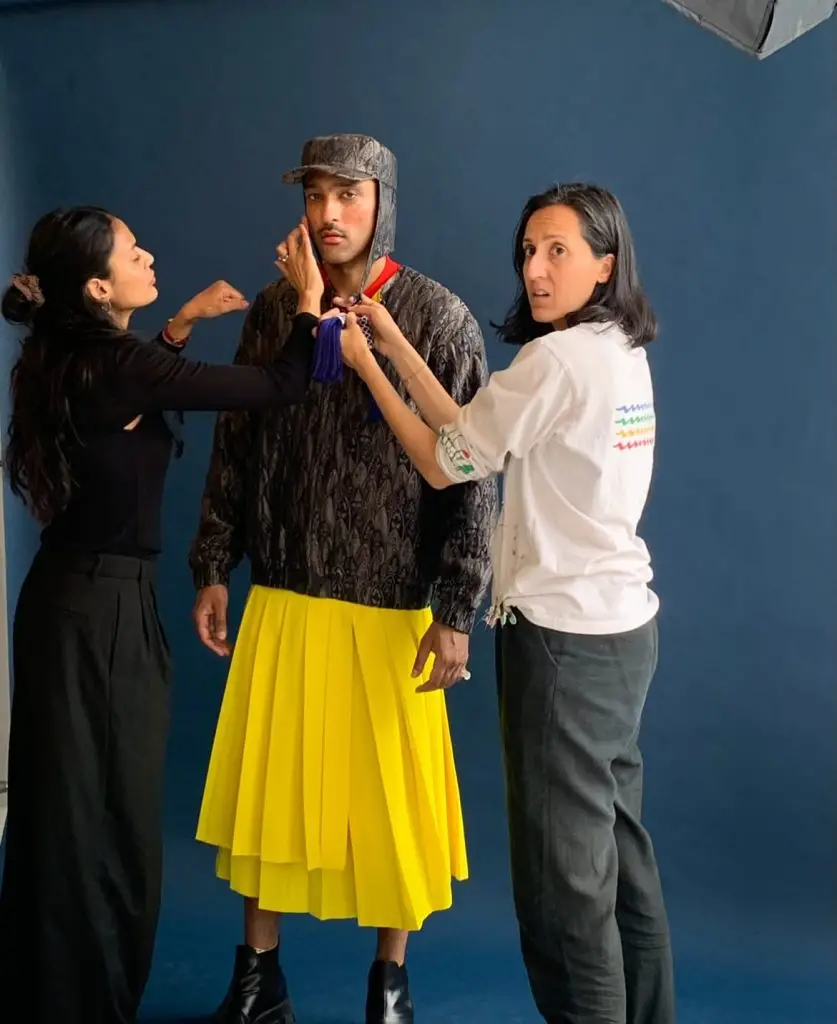
The Bigger Picture: Art, Identity, and Freedom
Ali Sethi’s dressing style and Bridegroom song are more than just music and fashion—they’re about freedom of expression. His gender-fluid choices challenge traditional norms, sparking conversations about identity and acceptance. In Pakistan, where same-sex relationships remain taboo, Ali’s openness is a bold statement.
His work, from Pasoori to Bridegroom, blends cultures and emotions, creating spaces for dialogue. While some see his style as controversial, others view it as a step toward inclusivity. Ali’s journey reminds us that art can push boundaries and inspire change, even in the face of backlash.
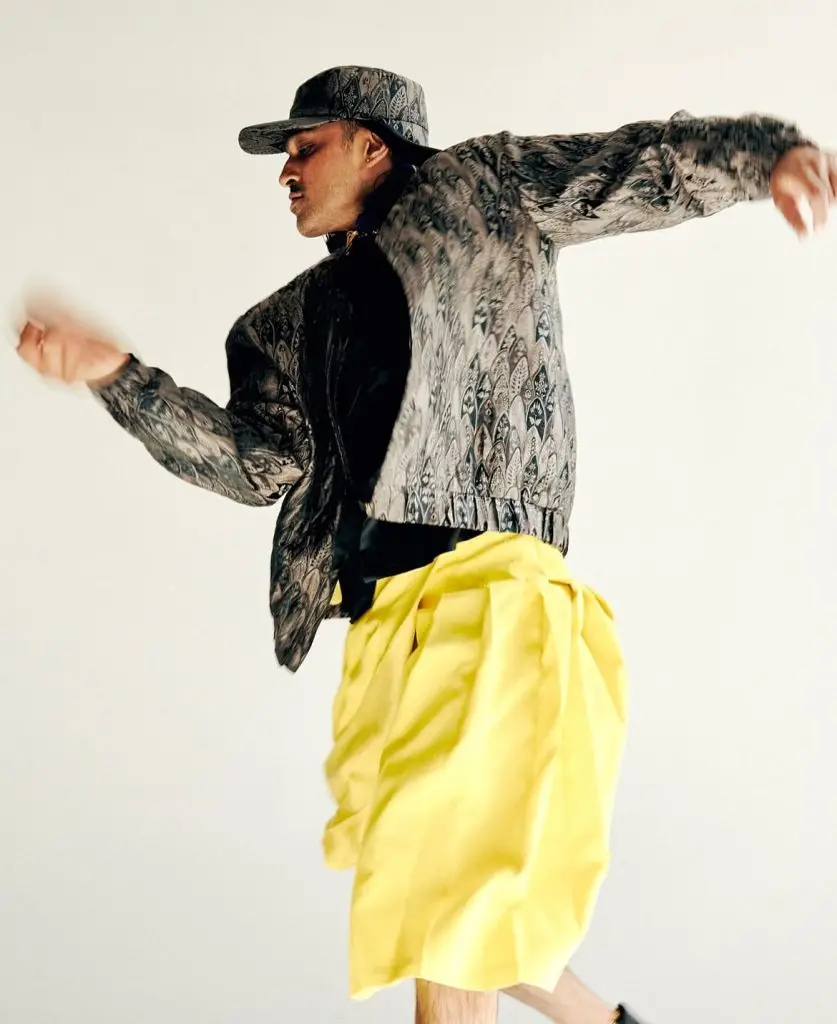
Why Ali Sethi’s Bold Choices Matter
Ali Sethi’s fearless approach to music and fashion inspires many, especially young queer individuals in South Asia. His Bridegroom song and yellow skirt moment show that art can transcend gender and cultural limits. By staying true to himself, Ali encourages others to embrace their uniqueness, despite criticism.
For fans, his music is a bridge between tradition and modernity, connecting people across borders. His Coachella performance and global hits like Pasoori prove that talent and authenticity resonate worldwide. Ali’s story is a reminder to celebrate individuality, no matter the challenges.
